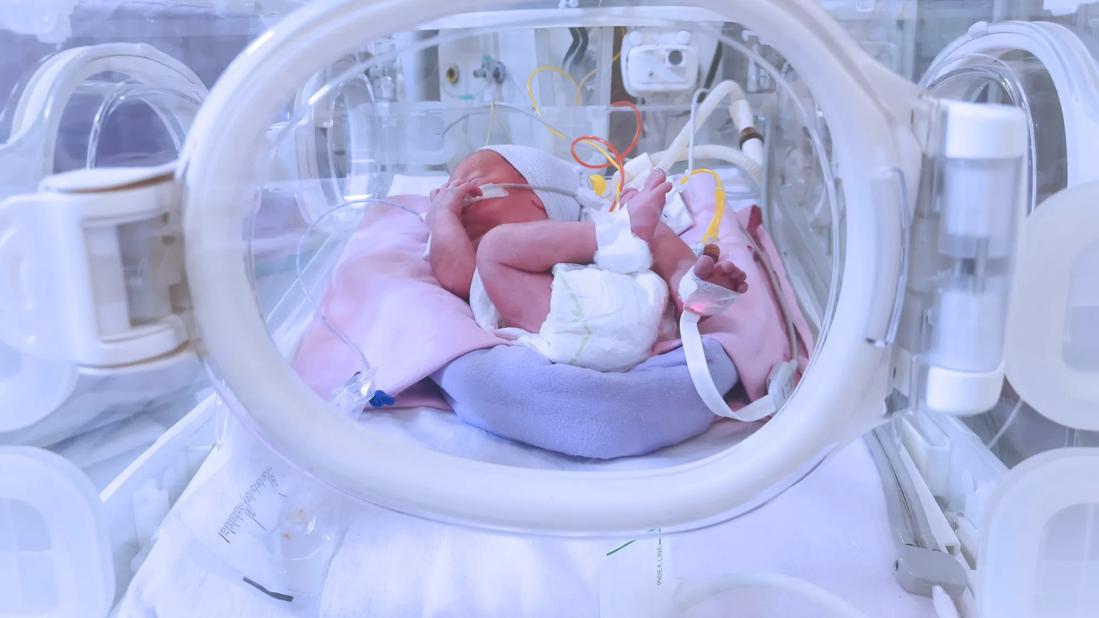Online streaming allows parents to see babies 24/7

For parents with infants in the NICU, it’s often emotionally difficult to leave their babies. But most have jobs, children at home or other responsibilities that prevent them from staying in the NICU 24/7. Last July, Cleveland Clinic’s Fairview Hospital installed NicView® cameras next to each incubator and basinet in the NICU so parents and families can see live streamed video images of their babies around the clock.
Advertisement
Cleveland Clinic is a non-profit academic medical center. Advertising on our site helps support our mission. We do not endorse non-Cleveland Clinic products or services. Policy
“They are able to see their infant at any time, which helps to reassure them that the infant is sleeping or resting comfortably,” says Denise Speer, MSN, RN, Nurse Manager of Fairview Hospital’s NICU. “Being allowed to see their infant helps decrease anxiety.”
In 2016, the family of a former Cleveland Clinic NICU patient donated funds to purchase NicView cameras for all three NICUs in the Cleveland Clinic health system – main campus, Hillcrest Hospital and Fairview Hospital. The cameras are attached to moveable arms, which are affixed to the wall next to incubators and basinets. When patients are admitted to the NICU, they’re given information on the camera system and sign a consent form if they opt to use it. Then parents log onto a secure website using a password to access the video stream of their baby. Parents also have the option to share the site with other family members and friends.
In May 2016, Cleveland Clinic formed a task force with representatives from all three NICUs and the Clinical Engineering Department to prepare for implementation and develop standard operating procedures (SOPs), patient instructions and patient consent forms related to the cameras. Fairview Hospital was represented by Speer and Adele Hudnall, RN, a clinical nurse with nearly 30 years of experience in the NICU.
The NicView camera NICU SOP, which was approved in November 2016, includes the purpose of the online streaming video program and workflow for using the cameras. It also features detailed instructions for assigning cameras and patient beds, discharging patients, positioning and adjusting cameras, placing the cameras in privacy mode and documenting camera usage.
Advertisement
Two of the biggest concerns addressed by the task force were privacy and patient transfers. To ensure privacy, the cameras are turned off during routine patient care, such as taking vital signs and feeding, as well as during procedures and emergency care. While main campus and Hillcrest Hospital have single-bed rooms, Fairview Hospital’s primary NICU area is a large, 20-bed room. So Speer, Hudnall and other nurses at Fairview created a checklist for transferring patients within the NICU. The checklist includes all the tasks related to moving an infant to another bed, including reassigning the NicView camera to the correct infant.
Hillcrest Hospital was the first Cleveland Clinic hospital to go live with NicView cameras, followed by main campus and Fairview Hospital in July 2017. Hudnall serves as the system administrator at Fairview Hospital. A representative from Natus Medical Inc., the company that developed the NicView camera system, trained Hudnall, Speer, the assistant nurse managers and the health unit coordinators from Fairview’s NICU on assigning and setting up the cameras. They, in turn, educated clinical nurses on the unit on using the cameras during huddles and one-on-one conversations.
“The main thing for our nursing staff was going over the consent form with parents and making sure the parents know how to access the website on their phones, tablets or computers,” Hudnall explains. The nurses were a bit apprehensive before the go-live, as most people are during deployment of any new technology. But careful planning and implementation assuaged their concerns.
Advertisement
“Any doubt that I might have had as a nurse worrying about if I forget to do this, or don’t do that, is totally gone for me now,” says Hudnall. “To hear how happy the parents are to see their babies far outweighs any concerns that I had.”
Patient experience scores support the anecdotal evidence: NICU scores for the “overall rating of care given to my baby” category have steadily risen, from 93 percent in June 2017 before implementation to 100 percent in October 2017. “Any parent that we talk to is just thrilled with the camera system,” says Hudnall.
Advertisement
Advertisement

Planning continues with critical, patient-focused input from nursing teams

Strengthening care through targeted resources and frontline voices

Embracing generational differences to create strong nursing teams

CRNA careers offer challenge and reward

An unexpected health scare provides a potent reminder of what patients need most from their caregivers

Cleveland Clinic Abu Dhabi initiative reduces ICU admissions and strengthens caregiver collaboration

Veteran nurse blends compassion, cutting-edge transplant training and military tradition to elevate patient care

Embrace coaching and other tips to be a stronger leader